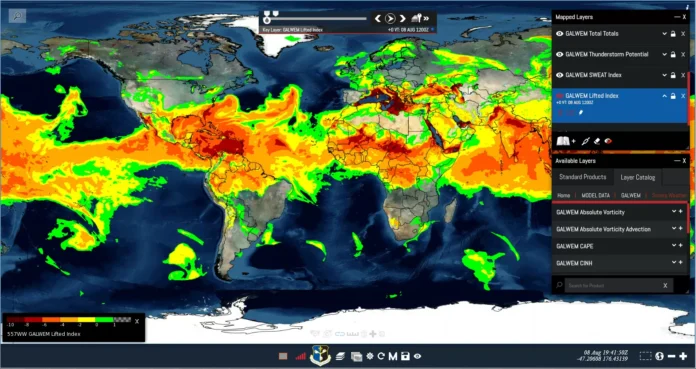The US government’s plan to revamp its weather satellite program has been a topic of discussion in recent months. The Space Force, initiated in December 2019, has been evaluating different options for the future of the program. This has caused some uncertainty in the industry as stakeholders wait for a final decision.
As the Space Force works on this evaluation process, the military’s weather satellite program is currently in a state of flux. This can be a cause of concern for those involved, but it is important to understand that this is a necessary step in the progress towards a more efficient and effective program.
The military’s weather satellite program has been around for decades and has played a crucial role in providing accurate and timely weather information to the armed forces. However, like many other technologies, it has evolved over the years and is now in need of an upgrade to keep up with the changing times. This is where the Space Force steps in.
The Space Force was created with the purpose of ensuring space superiority for the United States and its allies. As part of its responsibilities, it is tasked with evaluating and implementing a new strategy for the weather satellite program. This process involves looking at all aspects of the program, including technology upgrades, cost-efficiency, and mission capability, to determine the best way forward.
This evaluation process is crucial for the success of the program in the long run. It allows for a thorough analysis of all available options and ensures that the final decision is based on concrete data and extensive research. This is not an easy task and requires a significant amount of time and effort, but it is a necessary step in order to create a strong and sustainable program for the future.
Despite the uncertainty and challenges that come with this evaluation process, the Space Force remains committed to the success of the weather satellite program. In fact, this process is a reflection of the Space Force’s dedication to ensuring that the program is able to meet the evolving needs of the military. This is a positive and proactive approach that should be commended.
The Space Force’s focus on improving the weather satellite program is also a testament to its commitment to providing the best support possible to the armed forces. The accurate and timely weather information provided by these satellites is crucial for military operations and having a reliable and efficient program in place is a top priority for the Space Force.
It is also worth noting that this evaluation process is not just about upgrading technology, but also about finding ways to make the program more cost-effective. This is a responsible decision that takes into account the limited resources available and ensures that they are used in the most efficient manner possible. This approach not only benefits the military, but also the taxpayers who fund these programs.
While the military’s weather satellite program is currently in a state of flux, it is important to remain positive and trust in the Space Force’s expertise and commitment to making the right decision. This evaluation process is a crucial step in modernizing the program and ensuring that it remains a valuable asset for the military for years to come.
In conclusion, the Space Force’s evaluation of the military’s weather satellite program is a necessary and positive step towards creating a stronger and more efficient program for the future. While there may be some uncertainty in the short term, it is important to remember that this process is a reflection of the Space Force’s dedication to ensuring the success of the program and providing the best support possible to the armed forces. Let us trust in their expertise and look forward to a brighter and more advanced future for the weather satellite program.

